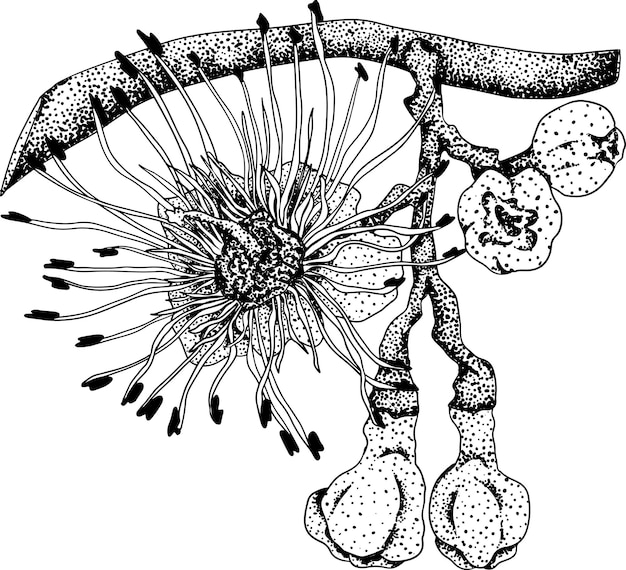Premature Ejaculation: Guide to Lasting Longer & Understanding PE

Premature ejaculation (PE) is a common sexual dysfunction characterized by uncontrolled ejaculation before or shortly after sexual penetration, causing personal distress and relationship challenges, but can be effectively managed with various psychological, behavioral, and medical interventions to improve sexual satisfaction.
For many, the topic of premature ejaculation (PE) remains shrouded in discomfort and misinformation. Yet, it’s a remarkably common sexual concern impacting countless individuals and their partners. This guide, The Ultimate Guide to Understanding and Managing Premature Ejaculation: Proven Techniques for Lasting Longer, aims to demystify PE, offering clarity, evidence-based solutions, and a roadmap to improved sexual satisfaction and confidence.
Understanding Premature Ejaculation: Beyond the Stigma
Premature ejaculation is often defined as ejaculation that occurs sooner than desired, either before or shortly after penetration, causing distress to one or both partners. It’s a condition that affects men of all ages, backgrounds, and relationship statuses, transcending cultural and social boundaries.
The experience of PE can vary significantly from one individual to another. For some, it might be an occasional occurrence, while for others, it’s a persistent challenge that profoundly impacts their sexual self-esteem and relationships. Understanding this variability is the first step towards seeking effective management strategies.
Defining the Condition
Clinically, PE is often categorized into two main types: lifelong (primary) and acquired (secondary). Lifelong PE is present from the first sexual encounters, typically driven by neurobiological factors. Acquired PE develops after a period of normal ejaculatory control, often linked to psychological factors, medical conditions, or lifestyle changes.
- Lifelong PE: Present from the outset of an individual’s sexual life.
- Acquired PE: Develops after a period of normal ejaculatory function.
- Variable PE: Irregular episodes of early ejaculation that don’t meet diagnostic criteria.
- Subjective PE: Perception of early ejaculation without meeting diagnostic criteria for PE.
Diagnostic criteria for PE usually include ejaculation occurring within one minute of penetration consistently, the inability to delay ejaculation, and significant personal distress as a result. However, it’s essential to remember that these are guidelines, and personal perception of control and satisfaction are paramount.
Many men feel isolated and embarrassed by PE, leading them to avoid sexual intimacy or discuss the issue. This silence often perpetuates the problem, preventing individuals from accessing the help and understanding they need. Breaking this cycle involves education and open communication.
Indeed, overcoming the stigma associated with PE is crucial for effective management. By acknowledging it as a legitimate medical condition rather than a personal failing, individuals can approach treatment with a more positive and proactive mindset. This shift in perspective is often the first step toward lasting change.
Unpacking the Causes: Why Does PE Occur?
The causes of premature ejaculation are multifaceted, involving a complex interplay of psychological, biological, and neurological factors. It’s rarely a single cause, which is why a holistic approach to understanding and treatment is often most effective. Disentangling these factors can lead to more targeted and successful interventions.
Understanding the potential origins of PE is empowering because it reframes the condition not as a fault, but as a challenge that can be addressed. This perspective encourages seeking professional help rather than succumbing to feelings of shame or inadequacy.
Psychological Factors
Mental and emotional states play a significant role in sexual function. Anxiety, stress, depression, or past traumatic experiences can all contribute to PE. Performance anxiety, in particular, is a common culprit where the fear of not lasting long enough paradoxically leads to rapid ejaculation.
- Performance Anxiety: Fear of not meeting expectations during sexual activity.
- Stress and Depression: Mental health issues that can impact sexual control.
- Early Sexual Experiences: Learning to rush during initial sexual encounters.
- Relationship Issues: Unresolved conflicts or communication problems.
Relationship dynamics can also influence PE. If there’s压力 or conflict, or if communication about sex is poor, it can exacerbate the issue. Open dialogue and mutual understanding between partners are vital components of any successful management strategy.
Moreover, formative sexual experiences, especially those where speed was prioritized (e.g., rushed encounters in youth), can inadvertently train the body to ejaculate quickly. Retraining the body and mind in a safer, more relaxed environment can counteract these learned behaviors.
Biological and Neurological Root Causes
Beyond psychology, several biological factors can contribute to PE. Imbalances in neurotransmitters like serotonin are often implicated; lower levels of serotonin in certain brain areas can lead to reduced ejaculatory control. Genetics may also play a role, making some individuals predisposed to the condition.
Other biological considerations include hormonal imbalances, such as thyroid problems, and underlying medical conditions like prostatitis or urinary tract infections. These can irritate the ejaculatory system and reduce control. Neurological factors, including nerve damage or hypersensitivity of the penis, also warrant consideration.

For example, inflammation and infection in the prostate or urethra can increase sensitivity in the pelvic region, making it harder to delay ejaculation. A comprehensive medical evaluation can help identify any such contributing physical ailments that need specific treatment.
Neurological conditions affecting nerve impulses, such as multiple sclerosis, can also disrupt the delicate balance required for ejaculatory control. It’s a complex system, and any disruption can have downstream effects on sexual function.
Understanding these diverse causes is not about self-diagnosis, but about appreciating the complexity of the condition and recognizing the importance of consulting healthcare professionals for an accurate diagnosis and personalized treatment plan. Self-treatment based on limited information can often be ineffective or even counterproductive.
Proven Techniques for Lasting Longer: Behavioral Strategies
Behavioral therapies are often the first line of treatment for premature ejaculation due to their effectiveness, low risk, and the control they give individuals over their sexual response. These techniques focus on retraining the body and mind to delay ejaculation, building increased self-awareness and control.
The beauty of behavioral techniques lies in their ability to be practiced both alone and with a partner, fostering communication and intimacy. Consistency is key, and while results may not be immediate, dedication often leads to significant improvements in ejaculatory control.
The “Stop-Start” Method
Developed by Dr. James Semans, the “stop-start” technique is one of the most widely recommended behavioral therapies. It involves stimulating the penis until you feel the urge to ejaculate, then stopping completely until the sensation subsides. This cycle is repeated several times before allowing ejaculation.
This method can be done during masturbation or with a partner. The goal is to learn to recognize the point of no return before it’s too late and to regain control. Over time, individuals become better at identifying and managing their arousal levels.
The “stop-start” approach teaches you to tolerate higher levels of arousal without ejaculating. It’s like training a muscle; the more you practice, the stronger your ejaculatory control becomes. Patience and persistence are crucial for success with this method.
The “Squeeze” Technique
Another highly effective behavioral method is the “squeeze” technique, popularized by Masters and Johnson. Similar to the stop-start method, it involves stimulating to the point of almost ejaculating. Instead of stopping, you (or your partner) firmly squeeze the tip of the penis (just below the head) for about 30 seconds.
This firm pressure helps to reduce the ejaculatory urge, allowing you to resume sexual activity with renewed control. The technique works by desensitizing the penis temporarily and distracting the body’s reflex to ejaculate. It can be particularly effective when practiced with a supportive partner.
Practicing these techniques regularly helps individuals tune into their body’s signals and develop a greater sense of control over their ejaculatory reflex. It’s a process of learning and refinement, leading to more enjoyable and satisfying sexual experiences.
Both the “stop-start” and “squeeze” techniques require consistent practice to yield long-term results. They empower individuals to actively participate in their treatment, fostering a sense of accomplishment and improved self-efficacy over their sexual health. Many men find these methods significantly enhance their sexual confidence.
Medical and Pharmacological Interventions
While behavioral therapies are often the first step, medical and pharmacological interventions offer additional solutions for managing premature ejaculation, especially when behavioral methods alone aren’t sufficient. These treatments work by altering neurochemical pathways or desensitizing the penis.
It’s important to consult with a healthcare professional before starting any medical treatment for PE. A doctor can accurately diagnose the condition, rule out underlying medical issues, and recommend the most appropriate and safest course of action based on individual health needs.
SSRIs and Other Oral Medications
Selective serotonin reuptake inhibitors (SSRIs) are frequently prescribed off-label for PE. These antidepressants work by increasing serotonin levels in the brain, which can delay ejaculation. Daily low-dose SSRIs (like paroxetine, sertraline, or fluoxetine) or on-demand use can be effective.
- Paroxetine (Paxil): Often considered the most effective SSRI for PE.
- Sertraline (Zoloft): Another commonly used SSRI, well-tolerated.
- Dapoxetine (Priligy): Specifically designed for on-demand PE treatment, not available in all countries yet.
- Tramadol: An opioid analgesic that has shown some effectiveness in delaying ejaculation, though less common due to side effects and addiction potential.
Dapoxetine is a short-acting SSRI specifically designed for on-demand use 1-3 hours before sexual activity, providing a faster onset and shorter duration of action compared to daily SSRIs. This makes it a convenient option for many men.
However, like all medications, SSRIs can have side effects, including nausea, dizziness, fatigue, and decreased libido. Discussing these potential side effects with a doctor is essential to weigh the benefits against the risks and find the best fit.
Topical Anesthetic Creams and Sprays
Topical anesthetic creams or sprays, containing lidocaine or prilocaine, work by desensitizing the penis, thereby reducing sensitivity and helping to delay ejaculation. These are applied to the penis a specified amount of time before intercourse and washed off to prevent transfer to the partner.
These products are often available over-the-counter and can be a good option for men who prefer not to take oral medication or in combination with other treatments. They provide a localized effect, minimizing systemic side effects.
The key to using topical anesthetics effectively is proper application and timing. Too much or too little, or incorrect timing, can either numb the penis too much, reducing pleasure, or not be effective enough. Experimentation with application is often necessary.
Some users find that topical creams can transfer to their partner, leading to numbness. Using a condom or washing the penis before penetration can mitigate this issue, ensuring that only the intended area is affected by the desensitizing agent.
Ultimately, the choice of medical intervention depends on individual factors, including the severity of PE, presence of other medical conditions, personal preferences, and potential side effects. A tailored approach involving consultation with a medical professional is always recommended for optimal outcomes.
Lifestyle Adjustments and Complementary Approaches
Beyond specific medical and behavioral interventions, incorporating certain lifestyle adjustments and exploring complementary approaches can significantly contribute to managing premature ejaculation and improving overall sexual well-being. These strategies focus on holistic health and stress reduction.
Adopting healthier habits can have a ripple effect on various aspects of life, including sexual function. These adjustments are often easy to integrate into daily routines and can provide long-term benefits for ejaculatory control and confidence.
Mindfulness and Stress Reduction
Given the strong psychological component of PE, mindfulness and stress reduction techniques are invaluable. Practices like meditation, deep breathing exercises, and yoga can help reduce anxiety, improve self-awareness, and enhance control over bodily sensations and responses.
Mindfulness allows individuals to be present during sexual activity, rather than dwelling on performance worries. This enhanced awareness can help in recognizing arousal levels and implementing control techniques more effectively. Reducing overall stress levels also alleviates a common trigger for PE.

Regular practice of mindfulness helps train the mind to stay calm and focused, which can translate into better impulse control during sexual encounters. It shifts the focus from anxiety to enjoying the moment.
Stress management is not just about meditation; it also involves setting realistic expectations, improving time management, and fostering healthy coping mechanisms for life’s challenges. Addressing the root causes of stress often leads to broader improvements in well-being and sexual function.
Diet, Exercise, and Pelvic Floor Exercises
A healthy lifestyle, including a balanced diet and regular exercise, can positively impact overall health, including sexual function. Maintaining a healthy weight, eating nutrient-rich foods, and avoiding excessive alcohol and caffeine can contribute to better vigor and stamina.
Pelvic floor exercises, also known as Kegel exercises, are not just for women. They can strengthen the muscles that play a role in ejaculation, potentially improving ejaculatory control. Regular practice of these exercises can help men learn to voluntarily contract and relax their pelvic floor muscles.
- Kegel Exercises: Strengthening muscles involved in ejaculation.
- Balanced Diet: Supports overall health and energy levels.
- Regular Exercise: Improves cardiovascular health and reduces stress.
- Avoidance of Excess Alcohol/Caffeine: Can negatively impact sexual performance.
To perform Kegels, identify the muscles used to stop urination. Contract these muscles for a few seconds, then relax. Repeat this process several times a day. Over time, stronger pelvic floor muscles can lead to better voluntary control over ejaculation.
While lifestyle changes and complementary therapies may not be standalone cures for severe PE, they can significantly enhance the effectiveness of other treatments and contribute to a more satisfying sexual life. They provide a holistic foundation for managing the condition.
The Role of Communication and Relationship Dynamics
Effective communication and strong relationship dynamics are paramount in managing premature ejaculation. PE can strain intimacy and lead to frustration for both partners, but open, honest dialogue can transform a shared challenge into an opportunity for growth and connection.
Addressing PE isn’t just about physical techniques; it’s also about fostering an environment of trust, patience, and mutual support. Without communication, partners may misinterpret actions or feel isolated, exacerbating the problem.
Building Open Dialogue
Encouraging an open and non-judgmental dialogue about sexual concerns is the cornerstone of effective management. Both partners should feel safe to express their feelings, fears, and frustrations without blame. Starting with “I” statements can help prevent defensiveness.
Acknowledging that PE is a common issue, and that it affects both individuals in a relationship, can de-escalate tension. When partners approach the issue as a team, solutions become more attainable. This shared understanding strengthens the emotional bond.
Communication also means clearly articulating what feels good during sex and what might contribute to early ejaculation. This allows for adjustments in technique, pace, and positions that can help prolong intimacy for both partners. It transforms sex into a collaborative exploration.
By fostering a safe space for dialogue, couples can reduce performance anxiety and shift the focus from ejaculatory control to mutual pleasure and intimacy. This change in perspective can significantly improve sexual satisfaction regardless of the duration of intercourse.
Importance of Patience and Support
Managing premature ejaculation often requires patience from both individuals. It’s not a condition that typically resolves overnight. There will be good days and bad days, and setbacks are a normal part of the process. A supportive partner can make all the difference during these times.
Instead of focusing solely on penetration and intercourse, couples can explore other forms of sexual intimacy, such as foreplay, oral sex, and manual stimulation. This diversification of sexual activities can reduce pressure and allow for more relaxed, enjoyable encounters.
Celebrating small victories – like a slight improvement in control or a particularly satisfying moment of intimacy – can reinforce positive progress and build confidence. Mutual encouragement helps sustain momentum throughout the treatment journey.
If the issue persists despite efforts, seeking counseling or sex therapy together can provide invaluable tools and strategies for both communication and sexual techniques. A professional can mediate discussions and introduce techniques tailored to the couple’s specific needs, further strengthening their bond.
When to Seek Professional Help
While many men can make significant progress in managing premature ejaculation through self-help techniques and lifestyle changes, there are times when professional intervention becomes essential. Knowing when to seek help is crucial for achieving the best outcomes and ensuring overall well-being.
Delaying professional assessment can prolong distress and strain relationships. A timely consultation with a healthcare provider can provide clarity, accurate diagnosis, and access to a wider range of effective treatments that may not be available through self-management alone.
Consulting a General Practitioner or Urologist
The first point of contact should generally be a general practitioner (GP) or a urologist. These professionals can conduct a thorough medical history, physical examination, and potentially order tests to rule out any underlying medical conditions contributing to PE.
A GP can offer initial advice, behavioral strategies, or prescribe oral medications. If the case is complex, or if there’s an suspicion of a specific urological issue, they will likely refer you to a urologist who specializes in male reproductive and urinary health.
Identifying and treating any underlying physical causes, such as a prostate infection or hormonal imbalance, is a vital step in managing PE. A medical professional can accurately pinpoint such issues, ensuring that the treatment plan is comprehensive and addresses all contributing factors.
Considering Sex Therapy or Counseling
If psychological factors are suspected to be significant contributors to PE, or if behavioral techniques aren’t yielding sufficient results, sex therapy or psychological counseling can be highly beneficial. A sex therapist specializes in intimacy and sexual function issues and can provide tailored strategies.
Sex therapy often involves individual and couple’s sessions aimed at addressing performance anxiety, relationship issues, trauma, or learned behaviors. Therapists can teach advanced behavioral techniques, communication skills, and mindfulness practices specifically designed to improve sexual control and satisfaction.
For couples, a sex therapist can facilitate open communication and develop shared strategies, transforming the challenge of PE into an opportunity for greater intimacy. They provide a safe space to explore sensitive topics and work through emotional barriers to sexual health.
Choosing a qualified and experienced professional, whether a medical doctor or a therapist, is paramount. Look for individuals who specialize in sexual health and have a compassionate, non-judgmental approach. Investing in professional support is an investment in your sexual health and relationship well-being.
| Key Point | Brief Description |
|---|---|
| 💡 Understanding PE | A common sexual concern, defined by early ejaculation causing distress, with both lifelong and acquired forms. |
| 🧠 Causes & Triggers | A mix of psychological (anxiety, stress) and biological (neurotransmitter imbalance, genetics) factors. |
| 🛠️ Proven Techniques | Behavioral methods (Stop-Start, Squeeze), oral medications (SSRIs), and topical creams offer effective management. |
| 🤝 Communication & Support | Open dialogue, patience, and mutual understanding with a partner are crucial for success and intimacy. |
Frequently Asked Questions About Premature Ejaculation
Premature ejaculation is typically a complex issue with both psychological and biological components. Psychological factors like anxiety, stress, or relationship issues can play a role, as can biological factors such as neurotransmitter imbalances, hormonal issues, or nerve sensitivity. Often, it’s a combination of these elements that contributes to the condition.
Yes, lifestyle changes can significantly contribute to managing PE. Regular exercise, a balanced diet, stress reduction techniques like mindfulness or meditation, and avoiding excessive alcohol or caffeine can all positively impact overall sexual health and may improve ejaculatory control. Pelvic floor (Kegel) exercises are also often recommended.
The “stop-start” and “squeeze” techniques are highly effective behavioral therapies for premature ejaculation. They teach individuals to recognize and control their arousal levels, thereby delaying ejaculation. With consistent practice, many men experience significant improvements in ejaculatory control and confidence, making them cornerstone treatments often recommended by therapists.
Yes, like all medications, those used for PE can have side effects. SSRIs (Selective Serotonin Reuptake Inhibitors) may cause nausea, dizziness, fatigue, or decreased libido. Topical anesthetic creams can temporarily numb the penis, potentially reducing pleasure, and may transfer to a partner. It’s crucial to discuss all potential side effects with a healthcare provider.
You should seek professional help if premature ejaculation is causing significant distress, impacting your relationships, or if self-help techniques aren’t providing sufficient improvement. Consulting a general practitioner, urologist, or sex therapist can provide accurate diagnosis, rule out underlying medical conditions, and offer a tailored treatment plan for effective management.
Conclusion
Navigating the complexities of premature ejaculation can be a challenging journey, but it is by no means an insurmountable one. By understanding its multifaceted causes, embracing both behavioral and medical interventions, and fostering open communication within relationships, individuals can regain control, confidence, and ultimately, a more fulfilling sexual life. This guide serves as a comprehensive starting point, but remember, personalized care from a healthcare professional is often the most effective path to lasting solutions and renewed intimacy.





